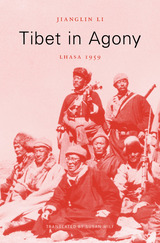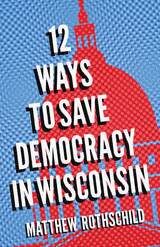4 start with T start with T

After defeating a segregationist campaign in 1960 to win the governorship, Sanford used his years in office to boost public education and advance race relations. A decade later, at the height of tumult on American campuses, Sanford assumed the presidency of Duke University and led it to its position as one of the top universities in the nation. During his more than fifty years as a public servant he was associated with presidents John F. Kennedy, Lyndon B. Johnson, Richard Nixon, and Jimmy Carter. Sanford was a presidential candidate himself in 1972 and 1976, and he won election to the United States Senate in 1986 where his international commission produced an economic recovery plan for Central America. As one of the last New Deal Democrats in the Senate, he remained passionate about the opportunity for leaders to use government to improve people’s lives.
Terry Sanford draws on Sanford’s considerable private and public archive as well as on the recollections of Sanford himself and his family, colleagues, and friends. This biography offers a unique perspective on North Carolina life, politics, political personalities, and the shifting public allegiances of the second half of the twentieth century that transformed life both in North Carolina and throughout the American South.


The Chinese Communist government has twice invoked large-scale military might to crush popular uprisings in capital cities. The second incident—the notorious massacre in Tiananmen Square in 1989—is well known. The first, thirty years earlier in Tibet, remains little understood today. Yet in wages of destruction, bloodshed, and trampling of human rights, the tragic toll of March 1959 surpassed Tiananmen.
Tibet in Agony provides the first clear historical account of the Chinese crackdown in Lhasa. Sifting facts from the distortions of propaganda and partisan politics, Jianglin Li reconstructs a chronology of events that lays to rest lingering questions about what happened in those fate-filled days and why. Her story begins with throngs of Tibetan demonstrators who—fearful that Chinese authorities were planning to abduct the Dalai Lama, their beloved leader—formed a protective ring around his palace. On the night of March 17, he fled in disguise, only to reemerge in India weeks later to set up a government in exile. But no peaceful resolution awaited Tibet. The Chinese army soon began shelling Lhasa, inflicting thousands of casualties and ravaging heritage sites in the bombardment and the infantry onslaught that followed. Unable to resist this show of force, the Tibetans capitulated, putting Mao Zedong in a position to fulfill his long-cherished dream of bringing Tibet under the Communist yoke.
Li’s extensive investigation, including eyewitness interviews and examination of classified government records, tells a gripping story of a crisis whose aftershocks continue to rattle the region today.

From tightening campaign finance laws and banning gerrymandering to rooting out structural racism and moving toward economic equality, each chapter focuses on one of the dozen reforms that are required to heal democracy within the state. Rothschild provides an in-depth rationale for each, dismantling the counterarguments against them and exploring the complexities involved in implementing them. He offers concrete proposals and action items for grassroots organizers and concerned community advocates to restore constituent control of state politics. This pocket-sized handbook is essential for politically aware citizens as well as journalists and watchdogs who see Wisconsin as a crucial battleground state and political bellwether for the nation.
READERS
Browse our collection.
PUBLISHERS
See BiblioVault's publisher services.
STUDENT SERVICES
Files for college accessibility offices.
UChicago Accessibility Resources
home | accessibility | search | about | contact us
BiblioVault ® 2001 - 2024
The University of Chicago Press









